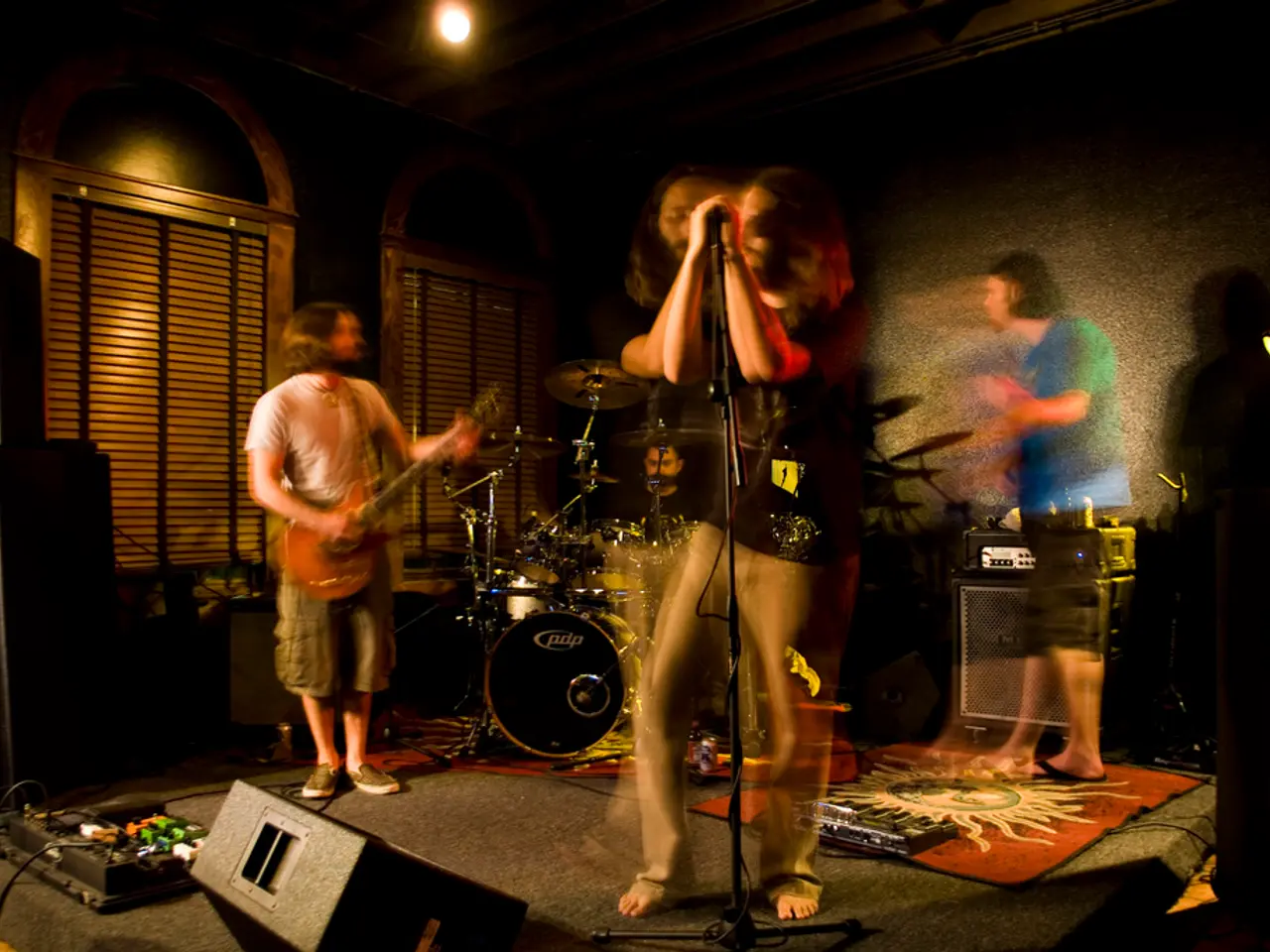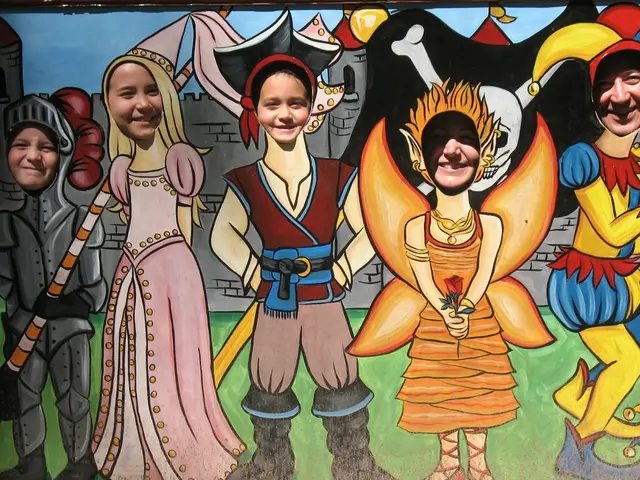Exploring the Barbican as artistic inspiration: Composer Shiva Feshareki discusses breathing life into the iconic brutalist structure through music.
In the heart of London lies the Barbican estate, a Brutalist architecture complex constructed post World War II by architects Chamberlin, Powell and Bon. This iconic structure, originally the site of a Roman fortress, now houses a performing arts centre, a tranquil one-hectare lake, and a hidden conservatory packed with tropical plants.
On 23 February 2025, the Barbican estate will host a unique performance by British-Iranian experimental composer and turntablist, Shiva Feshareki. Feshareki, born in 1987, has been developing a new piece called 'Bab-Khaneh: Gatehouse of Memory', inspired by the Barbican estate.
Feshareki's work, part of a rich lineage of experimental composition, draws on everything from musique concrète pioneer Daphne Oram to warped, acid-flecked dub. Her interest in turntablism was sparked by watching DJs manipulate records in a visceral way, and her work often involves repurposing turntables, a technology traditionally associated with dance music culture and DJing.
'Bab-Khaneh: Gatehouse of Memory' aims to capture the unique and different experiences of each audience member, based on their own physical hearing, positioning in the room, or the memories and preconceptions they project onto the music as a listener. The performance will take place in the wooden-panelled concert hall of the Barbican estate, accompanied by the BBC Symphony orchestra and Feshareki's trademark turntables.
During the performance, Feshareki will compose electronic sound live, in response to the acoustics and what's happening in the space, and build up the sound from there. She will also respond to the orchestra's performance using a variety of analogue electronic instruments, from Vintage Space echoes and tape echoes to turntables and CDJs.
The concept for 'Bab-Khaneh: Gatehouse of Memory' involves using the acoustics and architectural design of the Barbican Hall as a kind of instrument, with speakers positioned throughout the space to create an orchestra of speakers. This innovative approach is reminiscent of a saying shared with Feshareki by Suzanne Ciani: "the bigger the disaster, the better the outcome".
Feshareki's work has inspired other artists, including Ciani, who discovered Oram's work through Feshareki's BBC Proms performance. Oram's work, including the piece 'Still Point', specifies live turntable manipulation and was composed in 1948. Feshareki felt emotional about the underperformed score of 'Still Point' and wanted to get it performed.
Feshareki has a personal connection to the Barbican estate, having grown up attending events there. Her upcoming performance at the Barbican on 23 February 2025 promises to be a unique and unforgettable experience, blending the architectural beauty of the Barbican estate with cutting-edge electronic music.
Read also:
- Fitbit Versa 4 Experiences Continuous Price Drops on Amazon
- Asthma Diagnosis: Exploring FeNO Tests and Related Treatments
- Impact, Prevention, and Aid for Psoriatic Arthritis During Flu Season
- Indian expatriates from Kerala in the United Arab Emirates experience a rare double celebration in 2025, as the Thiruvonam festival of Onam coincides with a public holiday.








